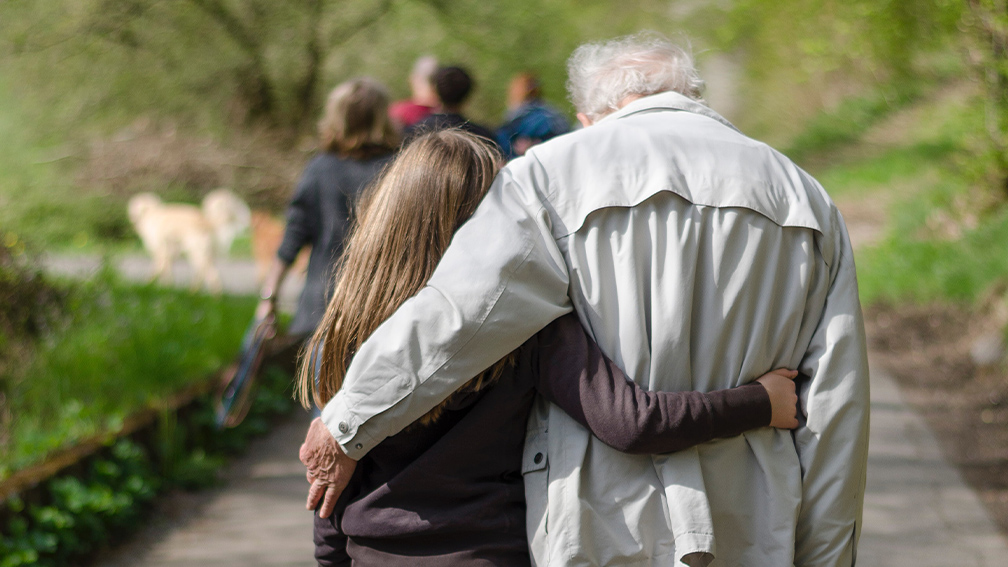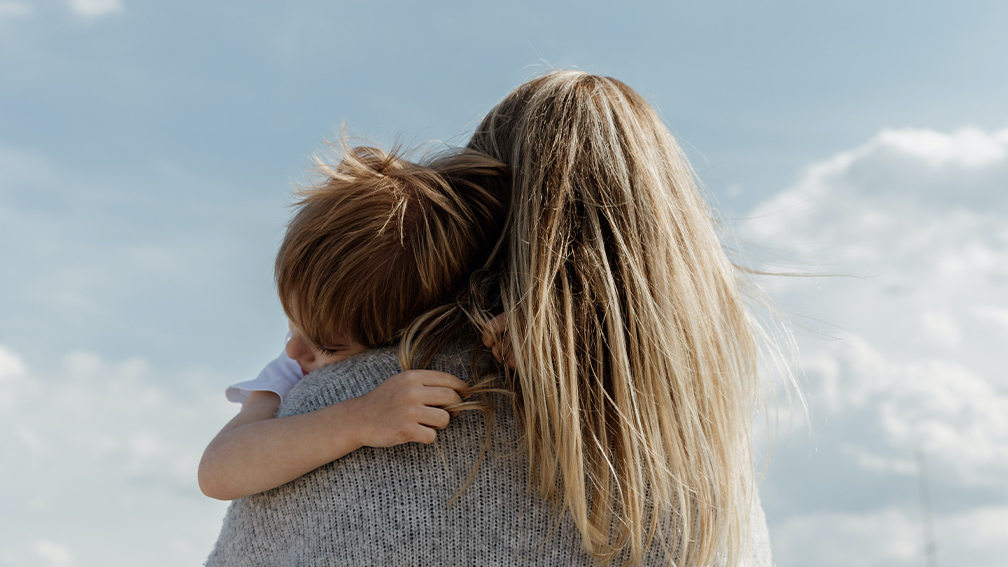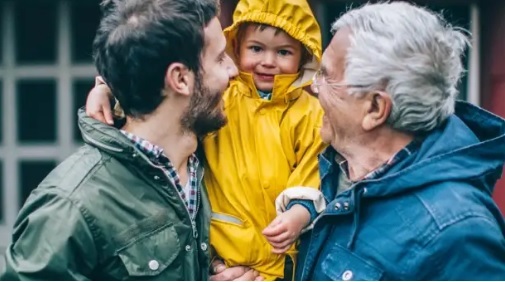Co-op Funeralcare
Find out ways of coping with the death of a grandparent whether it’s you or your child who’s lost them.
Why the death of a grandparent is significant
‘Losing a grandparent is often a child’s first experience of death, other than a pet,’ says, Dr Shelley Gilbert, founder of Grief Encounter , a bereavement service for children and young people.
Changing family dynamics mean that many grandparents today may also play a much bigger role in a child’s life than recent generations. They might look after them while both parents are at work, collect them from school or give them some space away from home. ‘They’ve been a huge part of their grandchild’s development from a young age, so their death can have a much bigger impact than previous generations,’ says Andy Langford, clinical director of Cruse Bereavement Support .
In general, people today are also living longer than previous generations so you may not experience the death of a grandparent until your 20s or 30s. This can be a bigger shock, if they are the first person close to you who’s died, as you may not be prepared for the reality of their death.

When a grandparent dies, it can be a shock – whether you’re 8 or 28 years old. Their death can trigger emotions such as feeling lost, angry, sad and guilty. It could also lead to changes within your family, as you all adjust to losing them.
How to tell a child about the death of a grandparent
Death can be a scary and confusing concept, so you need to be honest and direct when telling young children about a grandparent’s death.
Andy says, ‘Avoid phrases like “gone to sleep” or “passed away”. Your child may not understand what they mean, or it can make them frightened about going to sleep in case they, or someone else they care about, dies.’
Teenagers will appreciate you talking to them like adults but reassure them they don’t have to be ‘strong’ to support you; they are allowed to grieve and get upset, just like you. Reassure your child that it’s natural to feel sad and cry when someone dies – this can help reduce any anxiety they feel about you and sets up healthy grief behaviours.
You may be unsure about whether to take your child to the funeral. This depends on each individual child, but bereavement experts agree that you should ask them, whatever age they are, and try to involve them in some way.

What feelings might they experience?
‘Children, young people and adults will all have similar emotions following a bereavement, such as sadness, anger and a sense of loss,’ says Andy. ‘There’s also shock and questioning, “Why has this happened?”, even if a grandparent’s death was expected.’
Guilt is another common emotion. Dr Gilbert says, ‘Teenagers and young adults may be thinking “I wish I’d known more about them” or “I wish I’d spent more time with them”.’ Or they may feel guilty that they aren’t feeling upset – this may be the case if they weren’t that close to their grandparents.
Young children in particular may switch between asking difficult questions about their grandparent, death and dying, then go back to playing with toys. ‘We call it “puddle jumping”; they’re jumping in and out of that grief conversation,’ says Andy. ‘Try not to take it personally and give your child the time to answer these questions with them.’
For young adults, there may be certain times when ‘grandparent grief’ really hits home, such as going to university, leaving home, getting a first job or getting married. They may have always imagined their grandparents being there, and their absence can trigger feelings of loss and sadness, particularly if their death was quite recent.
Coping with the impact on your family
Today’s grandparents may be instrumental in holding a family together – they could provide childcare, financial help or even become the main carers for grandchildren at some points in their lives. ‘When a grandparent dies, there’s the emotional pain of losing them but their death can also bring lots of practical issues for families,’ says Andy.
If it’s your parent who died, you may dealing with your own grief, consoling your children, and trying to work out how to make life work without them. If your grandparent died later in life, you may have your own young family and also be worrying about supporting your parents through their loss. But don’t bury your grief or push it aside to deal with later – you can find bereavement support near you or see the resources at the end of this page.
Young children may not be able to express their grief, so it could come out in other ways: refusing to eat or go to bed, becoming very clingy or struggling at school. Teenagers may start to withdraw from you, staying out late with friends or getting angry about everything. Andy says, ‘It’s understandable, but it’s still really challenging!’
If the death of a grandparent has had a significant impact on your family, it may help to talk to a counsellor together.
How to remember a grandparent
There are many ways to keep the memories of a grandparent alive. You could:
• Make a scrapbook of photos, memories and facts about them. This can help your child learn more about their life and interests.
• Put together a memory box, full of items that remind your family of the grandparent. You can take the box out on special occasions, like Christmas or birthdays, and talk about them.
• Young adults may find it helpful to write a letter, describing what they wished they had said or done while their grandparent was still alive.
• Make something out of a piece of their clothing. Young children may find it comforting to create a teddy, while teens may want to make a cushion cover. If you’re into crafting, you could make a quilt from your grandparent’s clothes.
It may help to include a grandparent in future family occasions, too. For example, you could have photos of them at your wedding, pass on any jewellery for big birthdays like an 18th or 21st, or even name your children after them.
This can help keep their memory alive and shows they haven’t been forgotten. Dr Gilbert says, ‘Although you may be saying a goodbye to their presence on earth, it’s not a final goodbye. You – or your child – will always be connected to them.’

